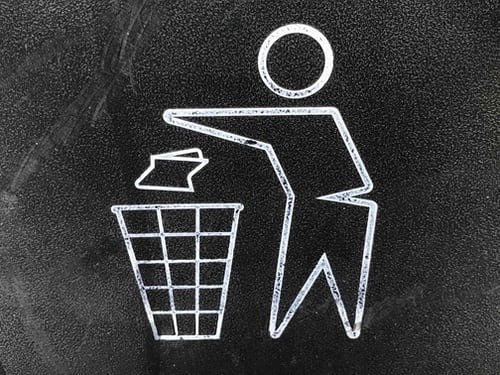What you can do with electronics you no longer need
We now live in a society that is heavily driven by technology. Upgraded phone models are released yearly, and it is the new normal to succumb to purchasing them. This is a repeated trait for most electronics, including TV’s and even items such as kettles and toasters now have to be matching and colour coordinated.
As this is a trend now popular with many, it means the UK has become one of the largest electronic waste producers in the world. So much so that an estimate of two million tonnes of electrical waste is disposed of each year by household residents in the UK. This amount of electrical waste makes it a huge task to recycle the items and ensure they are diverted from landfill.
Because of this, Fletchers Waste Management, who offer waste management and skip hire Sheffield, has put together information on electrical waste, why it isn’t good for the environment and different ways you can properly dispose of it.
So, what is electrical waste?
Commonly known as e-waste, electrical waste is when any electrical item is faulty or no longer needed. Items included are LED bulbs, TVs, fridge freezers, computers and microwaves.
These and other similar items all contain non-renewable sources such as platinum, gold, silver and aluminium. These are all precious metals, and if they are not recycled correctly will go to waste and won’t be reused for other similar electrical items.
How dangerous is electrical waste?
If electrical items are fly-tipped and not properly disposed of or recycled, they will break down. These items will then begin to release metals such as lead and arsenic, which are toxic heavy metals. When the things are in landfill or on the streets, the chances of these toxic metals reaching the soil are drastically increased.
When it rains, it means the toxins are then washed down and move into the soil. These toxins are then consumed by the surrounding soil and crops and are better known as leaching. Leaching can lead to water and food supplies being contaminated with this toxic metal pollution to put this into perspective. Consuming leachate from these toxins leads to incredibly high public health and environmental risks and can cause years of ill-health if not correctly treated.
How should electrical waste be disposed of?
It’s important to recycle and dispose of these electrical items correctly because they contain the harmful toxins present. In addition, businesses that are creating e-waste have strict Government legislation they must adhere to.
If the electrical item you have cannot be sold or donated to a charity, you should consult with your local council and check the best way to dispose of it. Most commonly, there are recycling centres nearby, and they will accept your electrical waste from you. There will be labelled containers instructing you where to dispose of them. To make it easier, any electrical item with a plug, battery or cable can be recycled.
Choosing what you want to part with can be challenging, especially if you enjoyed using that electrical item. However, keeping it as a ‘just in case’ may end up leaving you with more clutter. Instead, try gathering all the electricals you’re unsure about into one pile; seeing this mass of chargers etc, should help you realise you do not need them anymore and have not used them in a while.
If you have purchased an electronic item from a store and they now sell a new version, under the terms of the WEEE directive, the store must provide you with a way to dispose of your old electronic item via a buy-back scheme or a collection service. By doing this, it will help to make recycling electronics a lot easier and hassle-free.
Other ways you can reuse electrical items
Although recycling electronic items is excellent practice, it’s always best to try and reuse or donate the items to friends or a charity. For example, your old one could be considered for charities or friends when buying a new phone.
Shopping on Amazon Prime has become a go-to for many due to next day delivery and a large number of brands to browse through. Even more, Amazon now offers an Amazon Trade-In Programme. This programme allows you to send your eligible Amazon electronic devices to them in exchange for an Amazon gift card. This is a great incentive to encourage electronic recycling and makes the whole process feel even more worthwhile.
As well as this, you can reuse electrical items to create personalised and quirky decorations for your home and garden. For example, lightbulbs can be reused in the garden for plant holders; many ideas like this can be found on sites such as Pinterest.
Things to consider when hiring a skip for your clearout
If your old electrical items have been found due to a property clearout and you’re using a skip for this, please note that you will not be able to put these items into the skip as electrical items have hazardous materials. Fast Skips, who offer UK skip hire welcome calls to inquire about what things can go into skips and will help advise the best way to dispose of electrical items.

